Photos: Mini Terracotta Army Hidden in China Pit
Miniature court
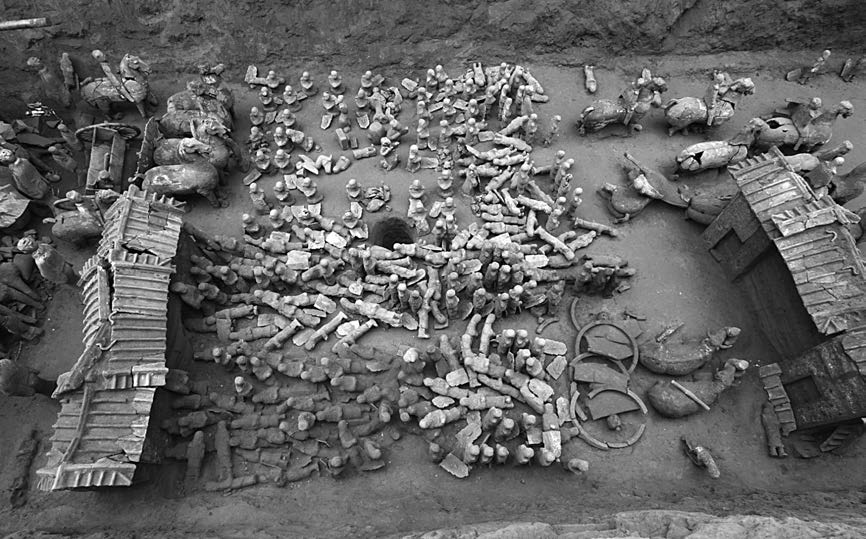
A 2,100-year-old pit containing chariots and small ceramic sculptures of infantry, cavalry, watchtowers, musicians and servants has been discovered in China. Containing about 500 artifacts in total it may have been constructed for a prince named Liu Hong who died in 110 B.C. [Read more about the 'Terracotta Army' discovery]
Detailed design
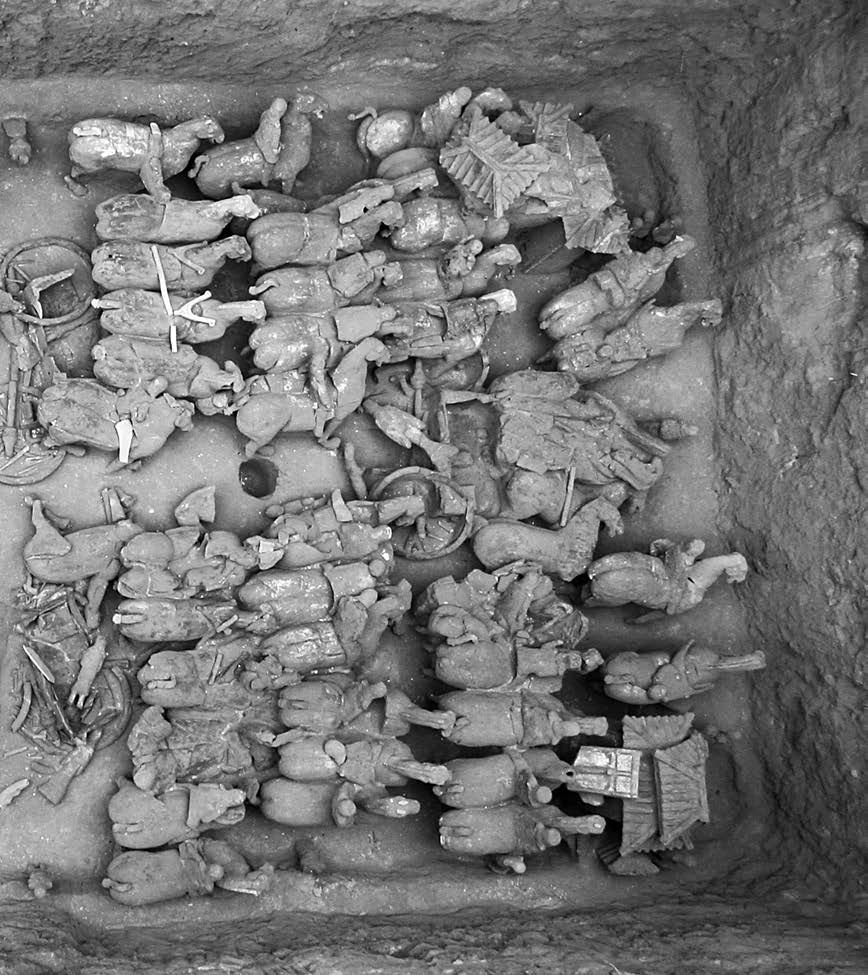
The soldiers in the pit are carefully organized. The southern part of the pit, seen here, has a formation of chariots and sculptures of cavalry. The cavalry sculptures are between 62 cm and 67 cm (24 – 26 inches) in height. The chariots are over a meter (3.3 feet) in length.
Pieces and parts
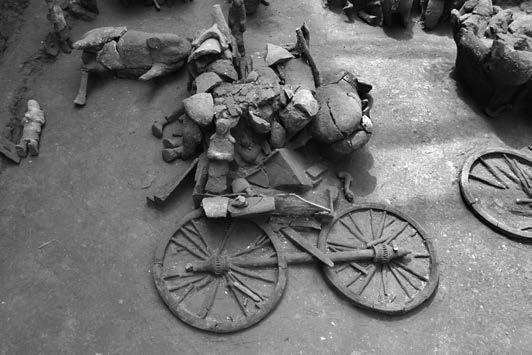
The photo shows the remains of one of the chariots along with sculptures depicting horses and chariot drivers. This chariot is part of a formation of five chariots that were buried together in the southern end of the pit.
The soldiers
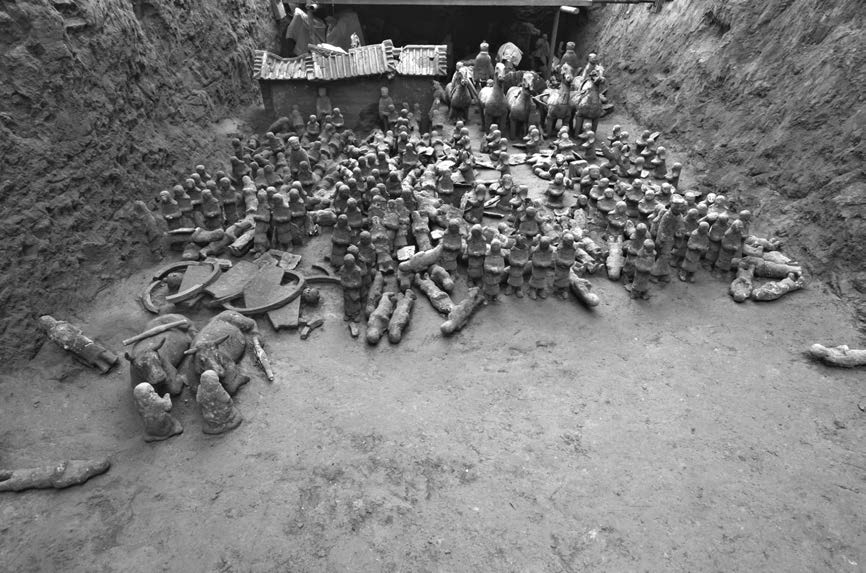
This photo shows the central part of the pit that has about 300 small infantry sculptures arranged in a square formation.
Warriors
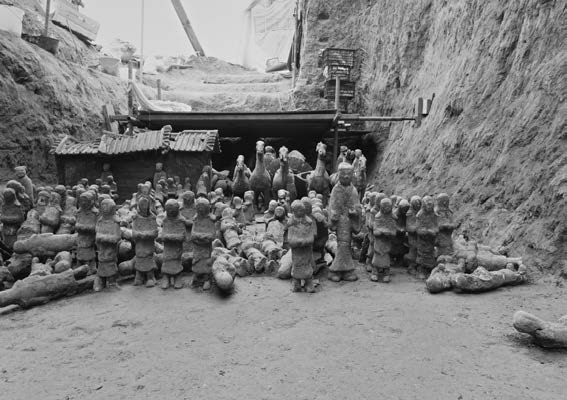
Another view showing the formation of about 300 small infantry sculptures. The infantry are between 22 cm to 31 cm (9 – 12 inches) in height.
Diversity represented
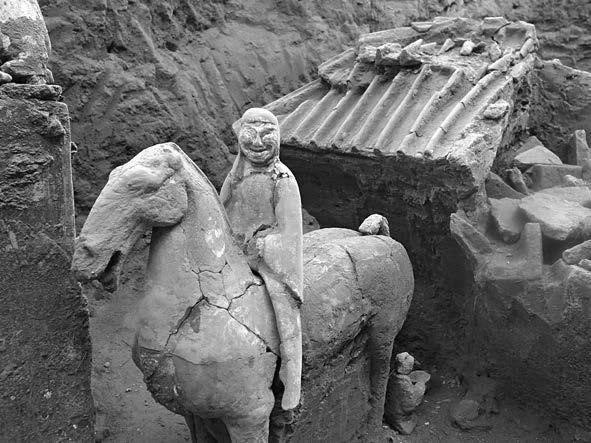
A close-up showing one of the cavalry sculptures buried in the pit. The facial features of the figure make archaeologists believe that the ancient sculptor was trying to depict someone who was from an ethnic minority group in ancient China.
A tiny community
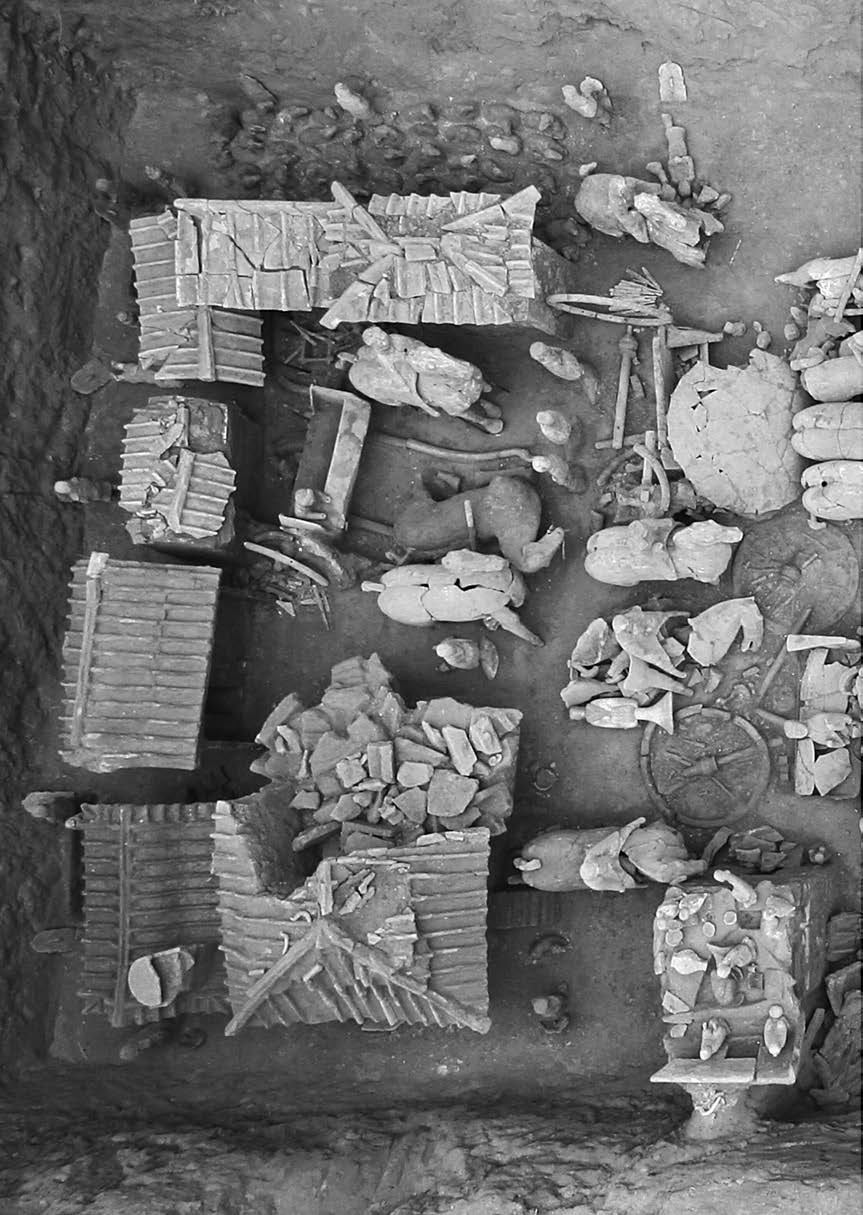
The northern part of the pit, part of which is shown here, contains sleeping quarters, the remains of a theatrical pavilion, granary, kitchen, pigstys and oxen.
Sign up for the Live Science daily newsletter now
Get the world’s most fascinating discoveries delivered straight to your inbox.

Owen Jarus is a regular contributor to Live Science who writes about archaeology and humans' past. He has also written for The Independent (UK), The Canadian Press (CP) and The Associated Press (AP), among others. Owen has a bachelor of arts degree from the University of Toronto and a journalism degree from Ryerson University.









